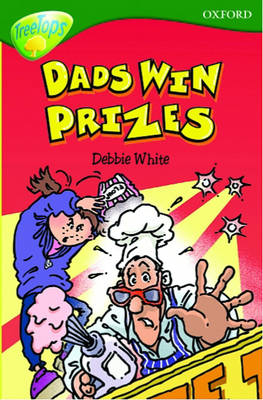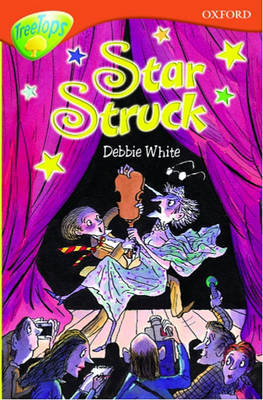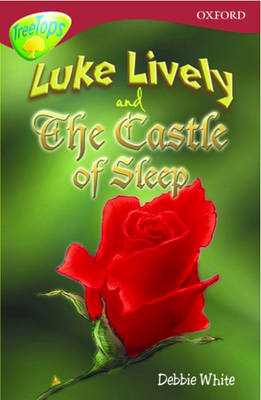Oxford Reading Tree
3 total works
These are further 18 "Treetops" titles in "Oxford Reading Tree's" series of fiction with built-in progression for pupils aged 7 to 11. Specially written for children who need the support of carefully monitored language levels, the stories are accessible, motivating, and humorous. The series is organized into "Oxford Reading Tree" stages (from Stage 10 to Stage 14), with each stage introducing more complex narrative forms, including flashbacks and changes in viewpoint; descriptive writing; extended reading vocabulary; and more pages, more text, and fewer illustrations. Each stage is supported by the Teacher's Guide, which offers guidance on using "Treetops" to assess children's reading ability, and includes a variety of activities, many on photocopiable sheets.
The "Treetops" titles in Oxford Reading Tree's series of fiction offer built-in progression for pupils aged 7 to 11. Specially written for children who need the support of carefully monitored language levels, the stories are accessible, motivating and humorous. The series is organized into Oxford Reading Tree stages (from Stage 10 to Stage 15), with each stage introducing more complex narrative forms, including flashbacks and changes in viewpoint; descriptive writing; extended reading vocabulary; and more pages, more text and fewer illustrations. Each stage is supported by the Teacher's Guide, which offers guidance on using Treetops within the framework of the National Literacy Strategy and includes activities on photocopiable sheets. This story is for stage 13+ of the scheme.
Oxford Reading Tree: Stage 15: TreeTops: Luke Lively and the Castle of Sleep
by Debbie White
Published 23 March 2000
Here are further 12 "Treetops" titles in "Oxford Reading Tree's" series of fiction with built-in progression for pupils aged 7 to 11. Specially written for children who need the support of carefully monitored language levels, the stories are accessible, motivating, and humorous. The series is organized into "Oxford Reading Tree" stages (from Stage 10 to Stage 16), with each stage introducing more complex narrative forms, including flashbacks and changes in viewpoint; descriptive writing; extended reading vocabulary; and more pages, more text, and fewer illustrations. "Pack E" features six new stories at Stage 15, and six stories at the new Stage 16. The Stage 16 stories are real children's novels with an increased level of challenge, up to 144 pages in length.


